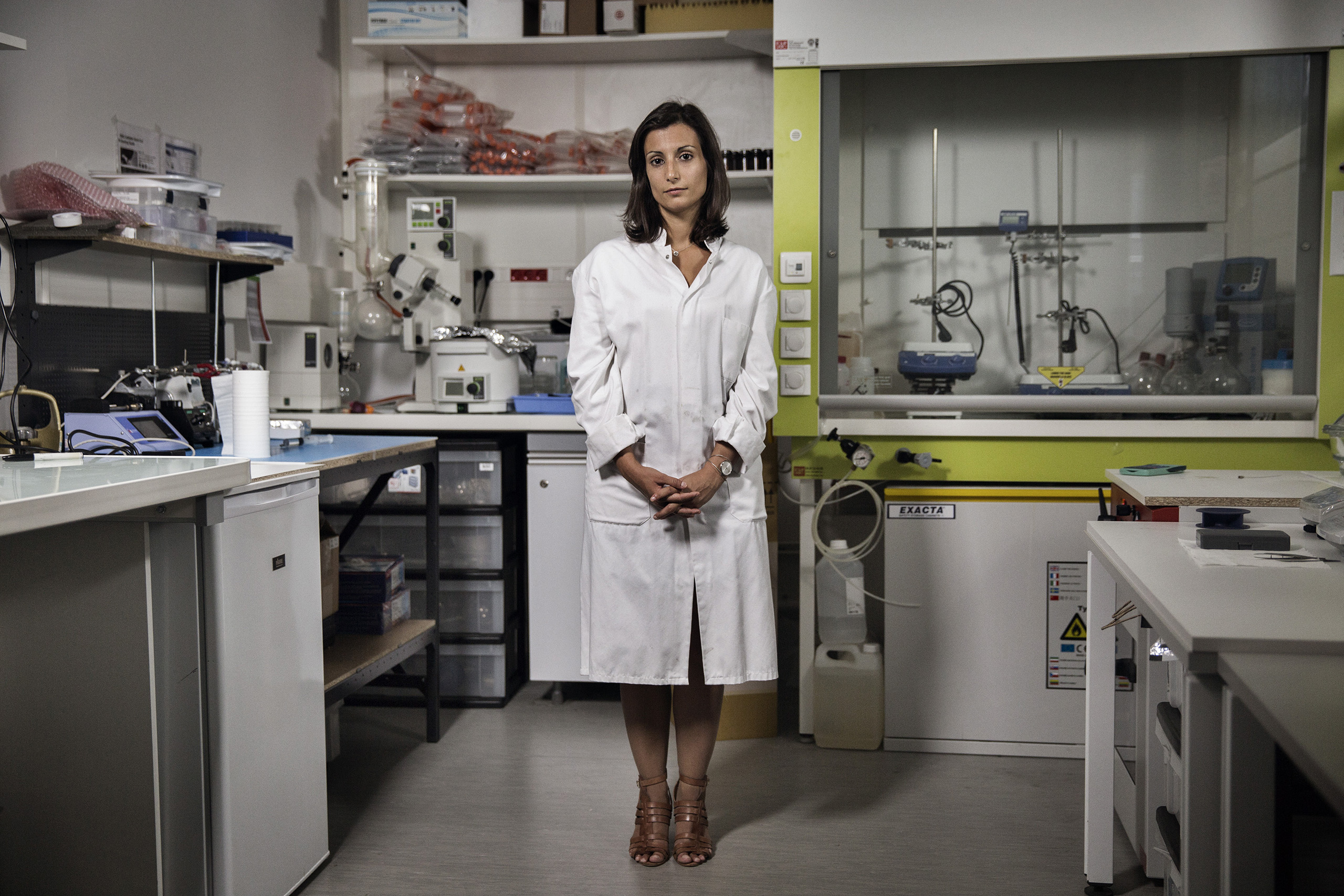Wherever Maria Pereira goes these days—her office in Paris, a conference in Boston, or back home to Portugal—she carries around a thumb-size vial of glue. That vial, a good-luck charm, may contain the solution to one of surgery’s oldest problems: how to seal wounds and holes in the body without damaging the body itself.
The ancient Egyptians and Greeks faced the same dilemma, and coarse stitches from catgut and silk were their method of choice. The modern physician relies on a more refined technique of suturing wounds, yet it can still result in infection, irritation and scarring. Pereira, the head of research at Paris-based medical-device startup Gecko Biomedical, plans on changing that. “Innovation in science is the key to improving people’s lives,” says the 30-year-old, who grew up in the Portuguese city of Leiria and moved to Paris in October 2013 to join Gecko. The company closed its first round of funding at the end of that year, raising $11 million to advance work on surgical glues and patches for wound closure.
Pereira’s journey began more than seven years ago, after she was awarded a scholarship from the MIT-Portugal Program to pursue a Ph.D. in bioengineering in Boston. “From day one, Maria was all in on all levels,” says Jeff Karp, her former research supervisor. “Because of her passion for learning and for making the world a better place, she really exhibited the steepest learning and growth curve of anyone I’ve ever seen.”

When Karp was approached by Boston Children’s Hospital in 2009 to come up with an alternative to sutures for addressing congenital heart defects, Pereira was the obvious choice to lead the research. There was a desperate need for a better solution: nearly 1 in every 100 babies is born with a congenital heart defect, and it’s a leading cause of infant deaths in the U.S. A child’s heart, merely the size of its own fist, is so fragile that suturing tissue can create additional tears; as the heart grows, more revision procedures are required, causing further damage.
Pereira’s goal was to develop a glue that could stick in the body’s harshest environment: the heart, which pumps what she describes as “a hurricane of blood” 60 times a minute. An adhesive that could attach under such wet and dynamic conditions must be elastic enough to expand and contract with each beat of the heart, and be hydrophobic (to repel blood away from the surface), biodegradable and nontoxic. In 2012, Pereira designed a material that met all those criteria and more: her glue adheres into place only when the surgeon shines a light on it, giving them control of the delivery process.
The material was so promising that Karp, together with established scientists and entrepreneurs, co-founded Gecko Biomedical in Paris and appointed Pereira to progress that medical technology from the lab into clinics. Within a year, her team managed to produce industrial quantities of the glue, up from just five grams in the lab. “Maria doesn’t just get things done, she makes things happen,” says Christophe Bancel, Gecko’s CEO.
With clinical trials due to start at the end of this year, the material could reach operating theaters as early as 2017. Pereira’s dream is to completely revolutionize modern surgery. So far, she hasn’t skipped a beat.
- The 100 Most Influential People of 2024
- Coco Gauff Is Playing for Herself Now
- Scenes From Pro-Palestinian Encampments Across U.S. Universities
- 6 Compliments That Land Every Time
- If You're Dating Right Now, You're Brave: Column
- The AI That Could Heal a Divided Internet
- Fallout Is a Brilliant Model for the Future of Video Game Adaptations
- Want Weekly Recs on What to Watch, Read, and More? Sign Up for Worth Your Time